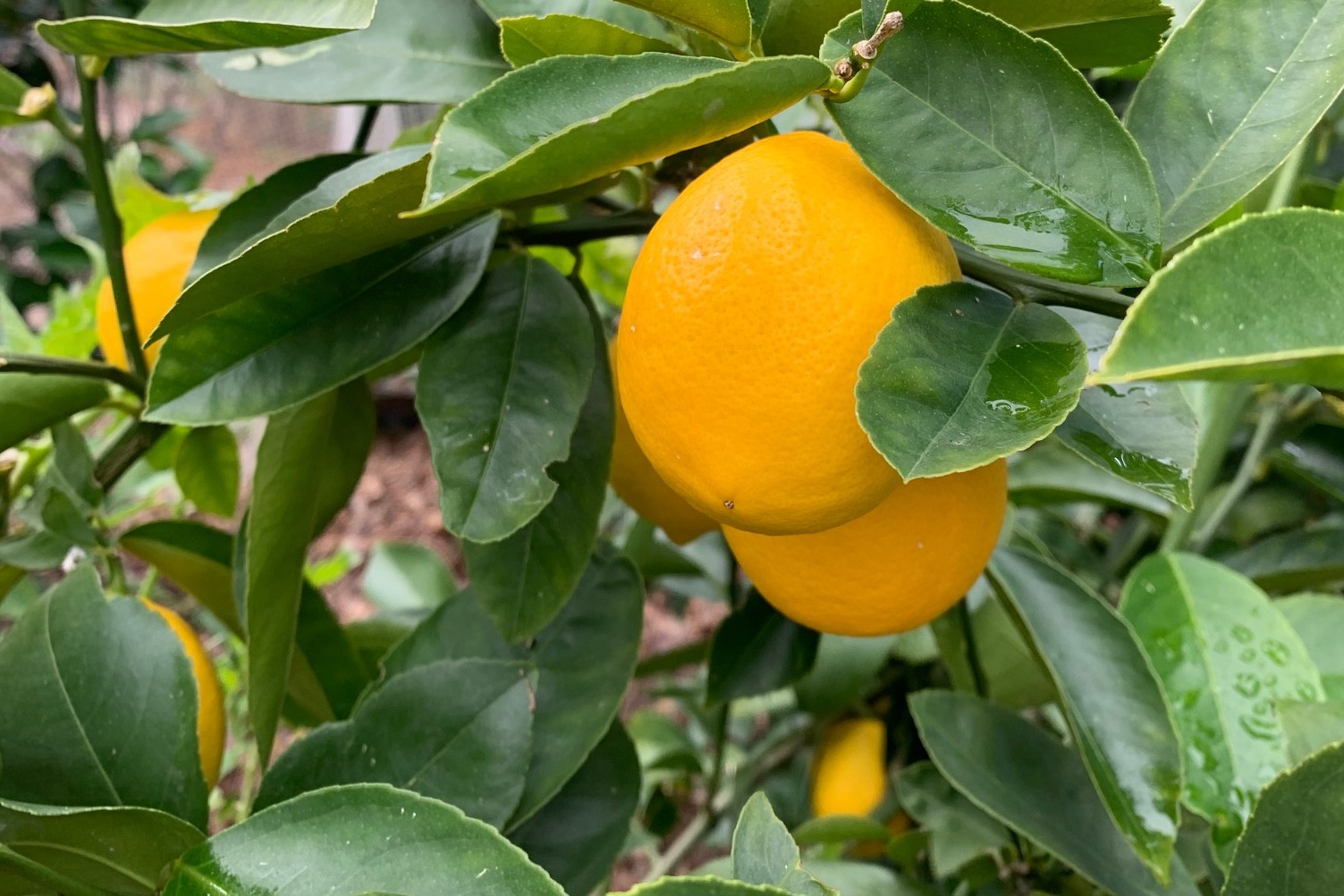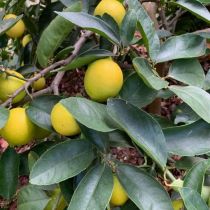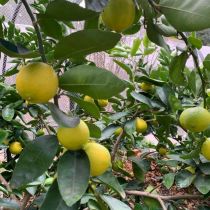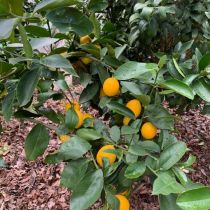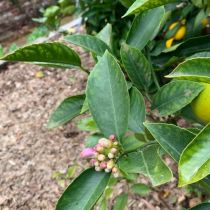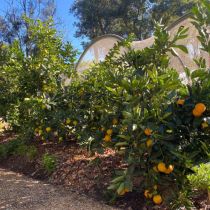Plant of the Week
Citrus limon - Lemon
We could talk all day about Citrus! Citrus is a genus of flowering trees and shrubs in the rue family, Rutaceae. So many plants in this genus produce citrus fruits, including the beautiful, bountiful crops such as oranges, lemons, mandarins, grapefruits, cumquats, pomelos, and limes.
But this week, it’s all about the lemon, Citrus limon, a small evergreen tree in the Rutaceae family.
What would we do without the humble lemon? Fish and chips without a generous squeeze of lemon? Exotic Moroccan tagines without preserved lemon? Sore throat gargles without lemon? What would our garden show
hosts talk about without their callers seeking the tips and tricks to produce the most versatile of all citrus – the lemon?
I’m sure that every second suburban backyard hosts a lemon tree. I have wonderful childhood memories of the Meyer lemon tree standing proudly in prime position in our sunny, manicured garden. This tree supplied friends and neighbours with juicy, sweet but tangy fruit, year after year. His lemon tree was my dad’s pride and joy.
The dwarf citrus available in garden centres now has given us even more flexibility to enjoy lemons picked fresh from our garden, patio or balcony gardens. Dwarf citrus trees are simply regular fruit trees that are grafted onto smaller plant rootstock. This means you get the tasty fruit of a normal citrus tree from a plant that works well in landscapes that can’t accommodate a full-size tree.
It seems that the most popular and successful lemon tree varieties are Eureka, Lisbon and Meyer.
Eureka
Widely thought of as the best all-round acidic lemon to grow, Eureka also has the benefit of having no spikes on the plant. This fact you’ll be pleased about come harvesting time. Eureka produces fruit almost year round in warm areas. The fruit is virtually seedless and has a thick rind and shiny yellow skin. Its acidic juice is perfect for setting jams etc. and for most culinary purposes. It can grow to 3-4m tall. It can be grown in pots but best to choose a variety with dwarf root stock for this purpose.
Lisbon
With very similar fruit characteristic to the Eureka, it is more tolerant of both the cold and hot, but it is less prolific in terms of fruiting - providing a heavy winter crop rather than multiple flushes. The negative is that it will become a large, prickly tree with its many spikes. It’s fruit is large with acidic juice, also perfect for jam setting and cooking, with a thick rind and good quality skin. The Lisbon grows to 3-4m tall. Again, best to choose dwarf root stock when planting in pots.
Meyer
Thought to be a cross between a lemon and an orange, the Meyer is a more compact, bushier tree that produces smaller, sweeter tasting fruit. A good one for the lemonade stand rather than setting jams and cooking, each lemon - which turns a deep golden colour when ripe - produces plenty of juice. Its small size means it’s suited to pot culture and its cold tolerance sees it used widely in frosty areas. Its fruit is mid sized and has a less acidic, sweeter juice with a thin rind. The Meyer grows to 2m in height and as such is perfectly suited to growing in large pots, even without dwarf root stock.
Choose a sunny spot with well drained soil to plant your lemon tree. If you’re short of sunny spots in the garden, they will be happy in pots that can be moved to take advantage of changing patterns of sunlight. Mulch around the base of your tree with organic mulch like sugarcane or pea straw, keeping it away from the trunk. Water deeply, once or twice a week, depending on weather conditions.
Feed your lemon tree three times a year, in early spring, summer and again in autumn. You do need a little patience, as lemons (and other members of the citrus family) need at least 3 years before the first harvest. The evergreen lemon tree, with its rich dark green shiny leaves, is a wonderful asset to any garden as a feature tree. It also makes a fabulous hedge, as seen in one of the photographs from Anne’s garden.
Whether you are juicing them for fresh lemonade, squeezing onto your freshly caught flathead tails, including them in delicious Asian recipes, spreading lemon curd onto your toast or baking them into a citrus tart, there is no doubt that lemons are a staple in just about every kitchen. A huge, gorgeous bowl of citrus in the middle of the dining table conjures up visions of farmhouse kitchens for me and of course, a slice of lemon in my gin and tonic is an absolute must!

